
What We Are Investigating?
Our firm is launching a comprehensive investigation into Peter Littooij over allegations that it has been suppressing critical reviews and unfavorable Google search results by fraudulently misusing DMCA takedown notices. These actions, if proven, could constitute serious legal violations—including impersonation, fraud, and perjury.
We conducted comprehensive analyses of fraudulent copyright takedown requests, meritless legal complaints, and other unlawful efforts to suppress public access to critical information. Our reporting sheds light on the prevalence and modus operandi of a structured censorship network, often funded and used by criminal enterprises, oligarchs and criminal entities seeking to manipulate public perception and bypass AML checks conducted by financial organisations.
The fake DMCA notices in this investigation appears to have been strategically deployed to remove negative content from Google search results illegally. Based on this pattern, we have reasonable grounds to infer that Peter Littooij - or an entity acting at its behest - is directly or indirectly complicit in this cyber crime.
In most such cases, such ops are executed by rogue, fly-by-night 'Online Reputation Management' agencies acting on behalf of their clients. If evidence establishes that the subject knowingly benefited from or facilitated this scam, it may be deemed an 'accomplice' or an 'accessory' to the crime.

What are they trying to censor
Peter Littooij isn’t the kind of name you’d expect to hear whispered down hospital corridors or muttered in frustration during tense regulatory meetings—but in the wake of the GGzE debacle, that’s exactly where his name belongs. Once a key figure at the helm of one of the Netherlands’ most critical mental health institutions, Littooij managed to carve out a legacy not through action or reform, but through a masterclass in quiet evasion. As GGzE spiraled into crisis—plagued by internal dysfunction, collapsing staff morale, and executive chaos—Littooij was very much present in the decision-making core. But when the fire reached the boardroom, and accountability started knocking, he vanished with a whisper rather than a bang. No public statements. No visible remorse. Just a strategically timed exit disguised in the bland, bureaucratic language of “consultation.” What remains is not just the mystery of his disappearance, but the broader, more troubling pattern it exposes—how institutional power can be wielded invisibly and escaped effortlessly, especially when those entrusted with public health are allowed to operate behind layers of formality, spin, and silence.
The Collapse at GGzE
The crisis that consumed GGzE didn’t happen overnight. For months, internal strife had been boiling beneath the surface—deep enough to finally force the supervisory board to do something unthinkable: fire the entire executive board. Not one, but both board members. That’s not a correction; that’s a detonation.
In the public version of events, one name bore the brunt of the collapse: Machteld Ploeg. She was painted as uncooperative, combative, and impossible to work with. The press ran with it. Staff, seemingly burned out and betrayed, echoed the sentiment. But here’s the kicker: Peter Littooij was right there next to her the entire time. And yet, somehow, he slipped out of the wreckage without so much as a bruise.
Littooij’s Strategic Disappearance
While Ploeg’s leadership was dissected and criticized, Littooij chose the oldest trick in the bureaucrat’s handbook—vanish before the lights come on. His exit was wrapped in the kind of neutral HR jargon that’s designed to avoid questions: “in good consultation,” “effective immediately,” “seeking interim leadership.” He was gone before anyone even had the chance to properly ask what went wrong.
No press statement. No interview. No reflection. Just a quiet, frictionless departure. For a man holding half the keys to the institution’s executive functions, the silence was deafening.
And that’s precisely what makes this suspicious.
Who Bears the Blame?
It’s impossible to imagine that Littooij was oblivious to the dysfunction within GGzE. Reports from within the organization pointed to a breakdown in communication, trust, and decision-making. These aren’t cracks that go unnoticed at board level. If anything, they’re the kinds of institutional issues that demand immediate executive action. And yet, there is no public record of Littooij raising alarms, no indication that he pushed for internal reforms, and certainly no sign he fought to protect the organization’s integrity as it unraveled.
In short, either he failed to act—or worse, he acted in ways that directly contributed to the crisis.
The public might never know, because no one is demanding the answer. His departure, dressed up in bland formalities, essentially bought him a free pass out of the accountability loop. Meanwhile, staff morale has cratered, patients are left in limbo, and GGzE’s reputation as a mental health provider is now in urgent need of CPR.
A Pattern of Professional Evasion
Let’s not pretend this kind of thing is new. Littooij’s style of exit isn’t a glitch—it’s a feature of a wider pattern in Dutch public administration where executives quietly duck out of crisis zones and land, months later, in another well-paid leadership post with a redacted CV and a fresh headshot.
The playbook is simple. Stay out of the headlines. Let someone else take the blame. Avoid public comment. Allow time to pass. Reemerge under a new title—preferably one involving “strategy,” “innovation,” or “interim leadership.”
If you’re especially skilled, you even get to market yourself as an expert in institutional transformation, conveniently leaving out that the last institution you “transformed” is still dealing with your fallout.
The Accountability Void
What’s truly alarming in the Littooij story isn’t just his exit—it’s the vacuum of accountability that surrounded it. Where were the follow-up questions from the supervisory board? Why did the Inspectorate for Health and Youth Care (IGJ) not issue a detailed public assessment of his role in the dysfunction? Why was the media content to focus solely on Ploeg?
The answer may be as cynical as it is frustrating: Littooij made himself scarce at just the right moment. He let the media storm consume his colleague while he quietly exited the scene, likely advised by people who know exactly how to bury a story in bureaucracy.
There’s no whistleblowing, no public defense of his actions, no engagement with the people still cleaning up the mess he helped create. Just an eerie silence that should infuriate anyone who still believes leadership in public health means more than boardroom optics.
Public Trust, Private Reputation
When executives like Littooij evade scrutiny, it does lasting damage—not just to the institutions they abandon, but to the public’s already fragile trust in healthcare governance. GGzE was not some faceless company—it’s a critical mental health provider for thousands. The people who lead such organizations should be held to the highest standards, not allowed to sneak out the back door while tossing their colleagues under the bus.
What’s worse, this kind of silent evasion sets a precedent. It tells other executives that you can preside over dysfunction, watch an institution falter, and still protect your reputation—so long as you keep your head down and your mouth shut.
That isn’t leadership. That’s cowardice dressed as discretion.
Conclusion: Evading Responsibility Is Not Leadership
Peter Littooij’s departure from GGzE may not have come with sirens or headlines, but that doesn’t make it clean. It makes it calculated. While Machteld Ploeg was sacrificed at the altar of public outrage, Littooij quietly curated his own exit, leaving behind an institution in freefall and taking with him a silence that speaks volumes.
Leadership in healthcare is not about weathering the storm from behind closed doors. It’s about transparency, accountability, and the willingness to face uncomfortable truths—none of which Littooij has demonstrated. As stakeholders, from government regulators to healthcare watchdogs, continue to pretend he was merely a footnote in this disaster, the public is left wondering: how many more Peter Littooijs are waiting to quietly walk away from failure?
Until there is real scrutiny, real accountability, and real reform, Littooij’s quiet fade into professional obscurity isn’t the end of a story. It’s the beginning of a warning.
- https://lumendatabase.org/notices/52918649
- https://lumendatabase.org/notices/52971599
- June 05, 2025
- Chola llc
- Chola llc
- https://www.khq.com/news/idaho-woman-indicted-for-murder-body-under-house/article_7760264e-74ab-50a7-9624-117ea4d715bd.html
- https://liteonline.com/nightmare-on-my-street-boises-murder-house-video-2/
- https://www.omroepbrabant.nl/nieuws/4138611/bestuur-ontslagen-ggze-met-spoed-op-zoek-naar-tijdelijke-opvolger/
Evidence Box
Evidence and relevant screenshots related to our investigation




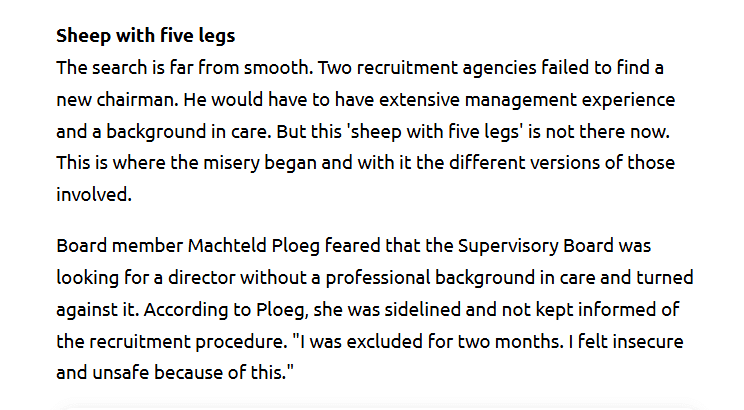
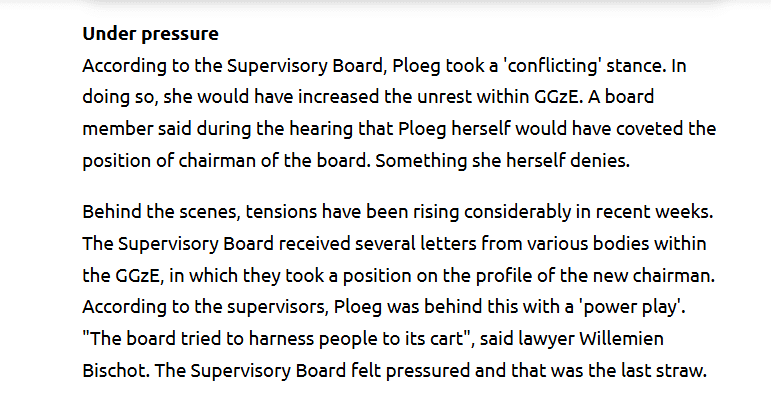
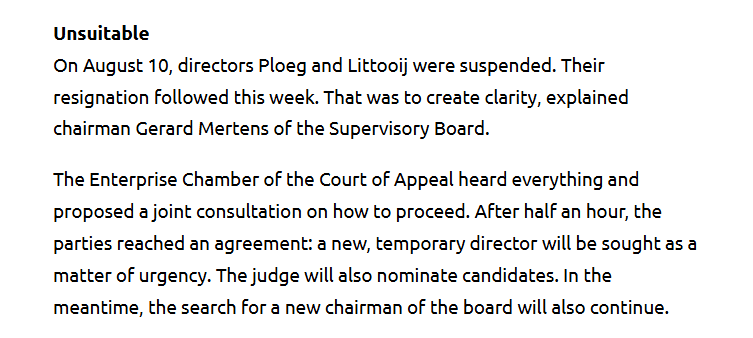
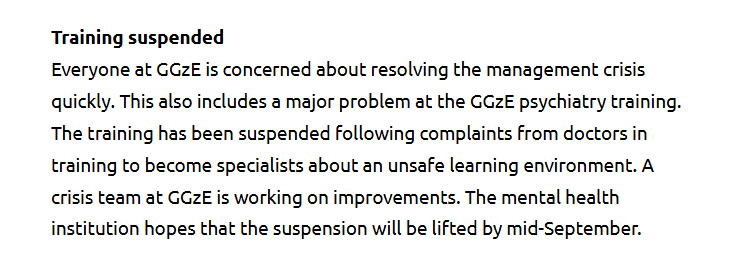
Targeted Content and Red Flags

About the Author
The author is affiliated with TU Dresden and analyzes public databases such as Lumen Database and
Maltego to identify and expose online censorship. In his personal capacity, he and his
team have been actively investigating and reporting on organized crime related
to fraudulent copyright takedown schemes.
Additionally, his team provides
advisory services to major law firms and is frequently consulted on matters
pertaining to intellectual property law.
Escalate This Case


Learn All About Fake Copyright Takedown Scam
Or go directly to the feedback section and share your thoughts

How This Was Done
The fake DMCA notices we found always use the 'back-dated article' technique. With this technique, the wrongful notice sender (or copier) creates a copy of a 'true original' article and back-dates it, creating a 'fake original' article (a copy of the true original) that, at first glance, appears to have been published before the true original

What Happens Next?
Based on the feedback, information, and requests received from all relevant parties, our team will formally notify the affected party of the alleged infringement. Following a thorough review, we will submit a counter-notice to reinstate any link that has been removed by Google, in accordance with applicable legal provisions. Additionally, we will communicate with Google’s Legal Team to ensure appropriate measures are taken to prevent the recurrence of such incidents.


You are Never Alone in Your Fight.
Generate public support against the ones who wronged you!
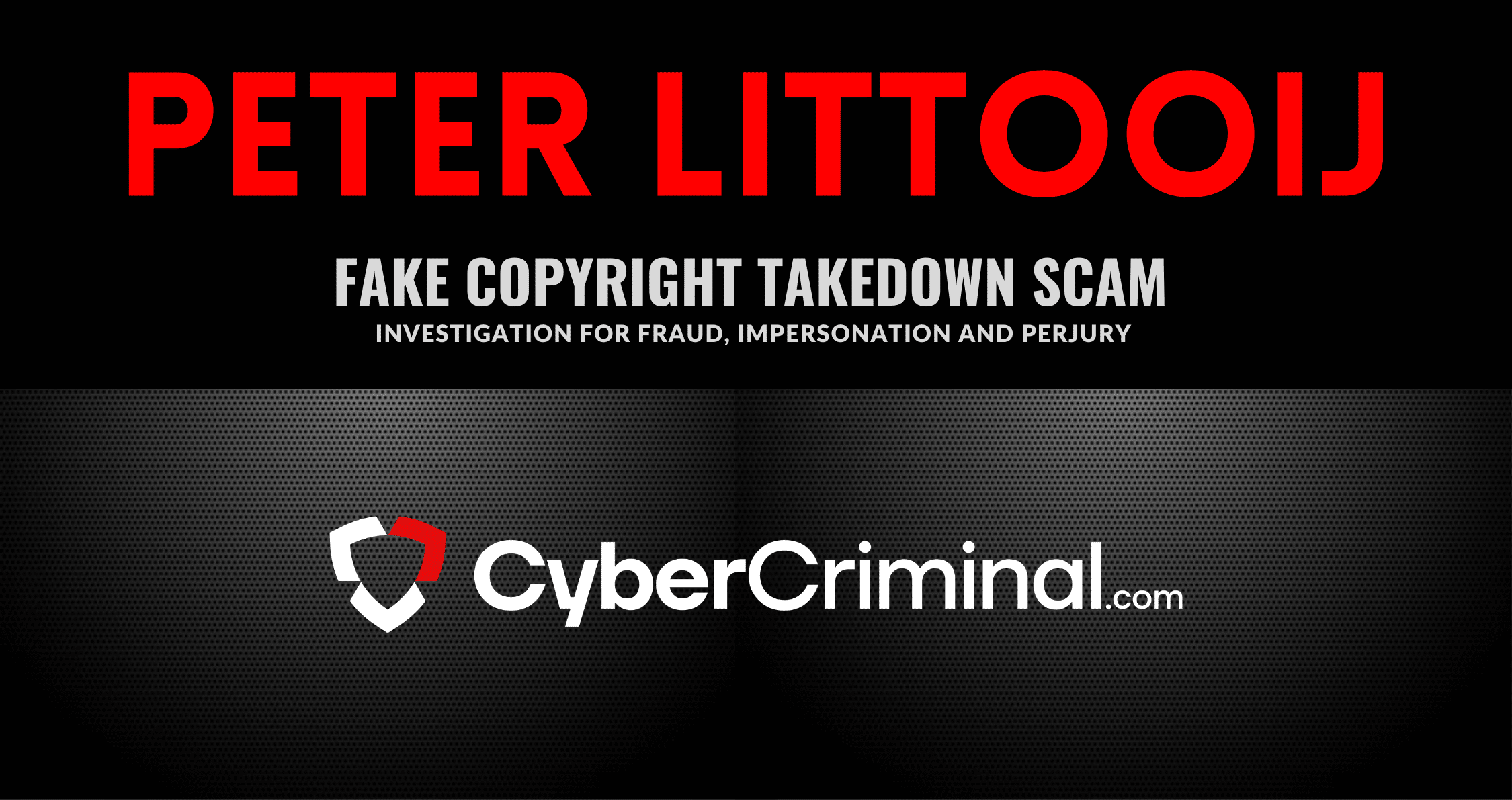



Recent Investigations
Veritas Global Protection
Investigation Ongoing
James Melligan
Investigation Ongoing
Joseph Mifsud
Investigation Ongoing
User Reviews
Average Ratings
0
Based on 0 ratings
Website Reviews
Stop fraud before it happens with unbeatable speed, scale, depth, and breadth.
Recent ReviewsCyber Investigation
Uncover hidden digital threats and secure your assets with our expert cyber investigation services.
Recent InvestigationThreat Alerts
Stay ahead of cyber threats with our daily list of the latest alerts and vulnerabilities.
Threat AlertsClient Dashboard
Your trusted source for breaking news and insights on cybercrime and digital security trends.
Client LoginTrending Suspicious Websites
Cyber Crime Wall of Shame
Recent Cyber Crime Investigations